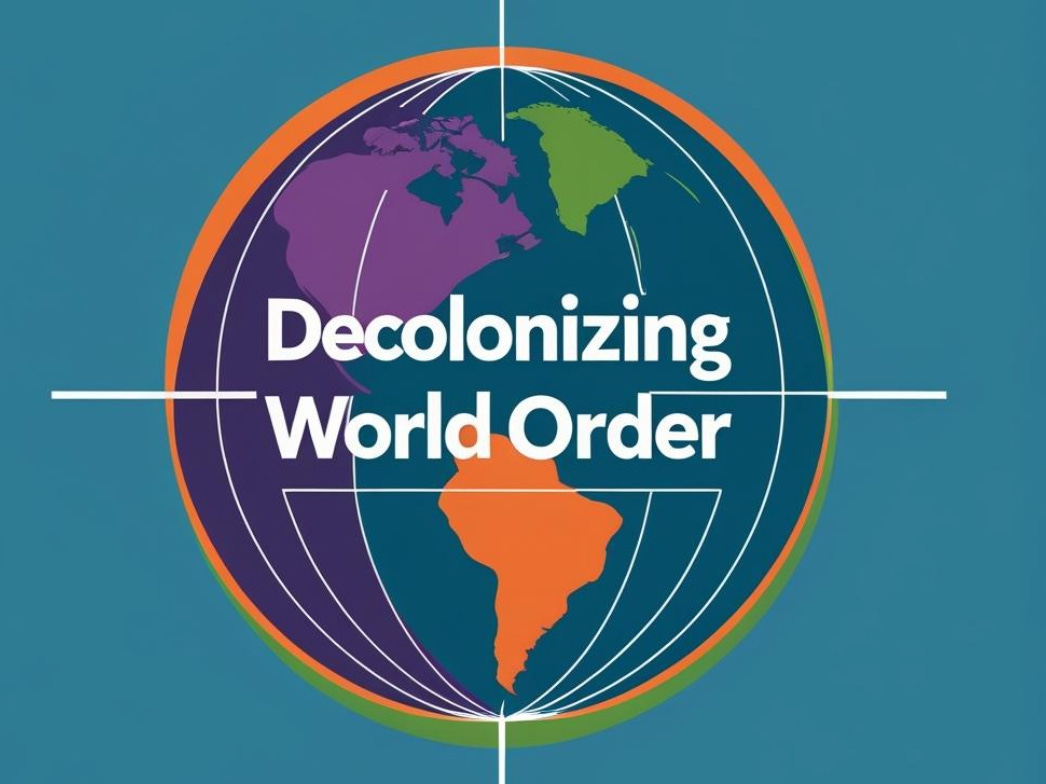Whose World Order is it Anyway? A Decolonial Reflection from Pakistan
Reading Haass from Pakistan: Decolonizing ‘How a World Order Ends’
Richard Haass' in his 2018 article in Foreign Affairs offered a stark reminder that world orders inevitably end, unraveling slowly rather than dramatically. Since the article is behind a paywall, I have placed it here for you to read and engage with.
Haass discussed the Concert of Europe and the post-World War II American-led liberal order, highlighting their slow disintegration amid shifting global dynamics.
But reading Haass from Pakistan compels us to ask different questions. For whom did these "world orders" truly bring stability? Who defined the rules, and who enforced them?
From Islamabad, Lahore, or Karachi, world order rarely felt orderly. Instead, it often felt imposed, distant, even exclusionary. Pakistanis have lived through global alignments Cold War alliances, the War on Terror that have dictated our national trajectory, often sidelining local aspirations or narratives.
Haass lamented the weakening of U.S.-centric multilateralism and calls for its renewal. But from our vantage point, we must question: Is a return to an American-led order really desirable, or even possible? Does such an order accommodate Pakistan’s voice and agency, or merely reinforce old hierarchies?
Even terms like "rise" of China or "assertive" Russia reflect Western frameworks. Should we not critically question this language itself? Whose perspective defines "rise" or "assertiveness," and what narratives does this terminology support or obscure?
The current so-called ‘upheaval’, characterized by China's growing global presence, Russia’s strategic repositioning, and resilient middle powers, offers an opportunity to rethink global governance, not just reforming institutions dominated by Western powers but reimagining them altogether. It is an invitation to assert a genuinely multipolar order reflecting diverse voices and experiences, including our own.
For Pakistan, navigating this shifting landscape means moving beyond passively responding to external pressures. It calls for a proactive strategy, where we craft alliances based on shared interests rather than historical compulsion. It demands diplomatic creativity, embracing regional opportunities, and redefining security and prosperity on our own terms.
Ultimately, a decolonized world order is not about the dominance of any single nation or bloc. It is about genuine cooperation, recognition of historical injustices, and respect for sovereignty and equality. For Pakistan, that means stepping forward confidently, not as spectators but as active participants shaping a fairer global future.



From what i see living in west for last 25 years, Pakistan is already governed by despot elites who enforce the colonial economic policies to benefit western corps or China at the cost of the displacement of Pakistani and Pakistan is not getting any richer rather embazzaled by these elites, apologies for being broken record
Read my take on this topic:
1)
Similarly, Jeffrey Sachs, once an economic reformer for the IMF, has turned into a fierce critic of U.S. global overreach. He now argues that BRICS offers the only viable platform for peaceful multilateral cooperation, calling it “the embryonic UN that the actual UN failed to become.” Sachs points to initiatives like the BRICS New Development Bank (NDB), which funds infrastructure and sustainable development projects in member countries, as a testament to this new cooperative spirit.
https://thinkbrics.substack.com/p/oops-the-global-south-just-flipped
2)
Western elites have excelled in the realm of management, honing control over economics, politics, and surveillance. Yet in doing so, they have largely forsaken the quest for meaning.
In sharp contrast, other civilizations are actively reviving what the West has long abandoned, often through concrete, culturally specific initiatives:
India is reasserting Hindu metaphysics within public discourse and governance, integrating ancient philosophic wisdom with modern politics.
China is artfully blending Confucian hierarchy with rapid economic dynamism, emphasizing collective harmony over rugged individualism.
Russia is reconstructing its national identity through a synthesis of Orthodoxy and Eurasian thought, fostering a distinctive spiritual and geopolitical vision.
The Islamic world is increasingly leaning on Sharia, robust family structures, and theological principles to rebuild societal foundations from within, foregrounding community bonds and divine guidance.
https://thinkbrics.substack.com/p/when-empires-tire-civilizations-at